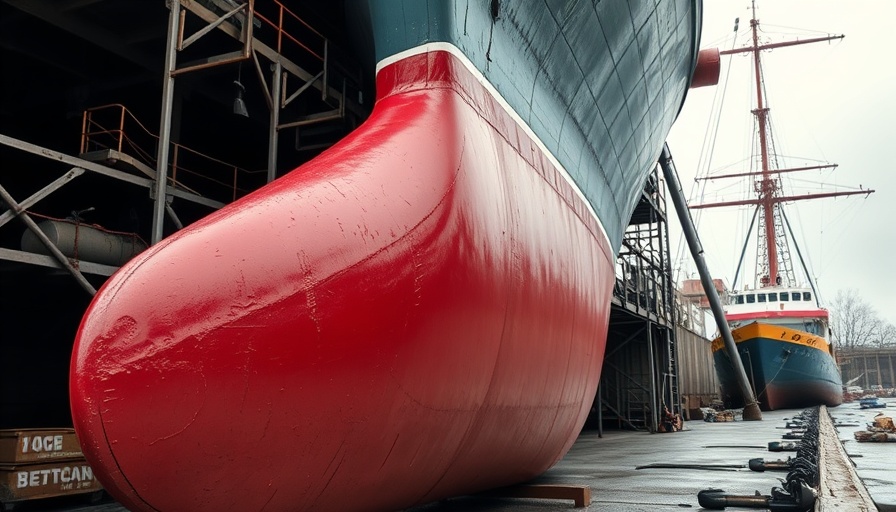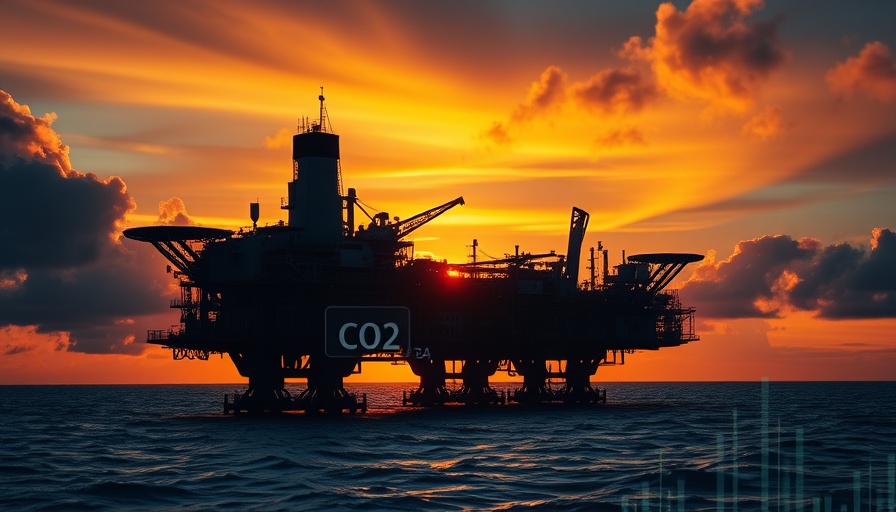
Understanding Cavitation: A Persistent Marine Challenge
Cavitation, characterized by the formation and collapse of vapor bubbles in water, poses a significant threat to marine infrastructure. When these bubbles collapse on or near metal surfaces, they can cause rapid and costly damage, particularly to critical components like rudders and thruster tunnels. This process not only leads to operational inefficiencies due to frequent repairs and drydockings but can also take a toll on safety in marine operations.
Enter Ecoshield: A Revolutionary Solution
Subsea Industries has introduced Ecoshield, a game-changer in protective marine coatings. Specifically engineered to combat the stresses of cavitation, Ecoshield employs a glassflake-reinforced formula that allows for two layers of application. Unlike traditional coatings that may fail under the pressures of underwater environments, Ecoshield is designed to last, effectively shielding steel surfaces from cavitation-induced erosion.
Real-World Success Stories: The Power of Ecoshield
Many maritime companies have already embraced Ecoshield with remarkable results. The German shipowner Ernst Russ reported that after applying Ecoshield to their vessel Elizabeth Russ, they stopped experiencing cavitation damage completely. Furthermore, Mediterranean Shipping Company (MSC) has adopted the coating for over 100 vessels, leading to significant reductions in maintenance costs and downtime.
CMA CGM also recognized the benefits of Ecoshield, extending its application across a fleet of over 100 ships since first using it in 2011. Likewise, Seaspan has noted that rudders coated with Ecoshield required no repairs even after nearly a decade, a testament to the coating's durability and effectiveness.
Quick Application for Valuable Long-Term Benefits
One of the most significant advantages of Ecoshield is the efficiency of its application process. Designed with operational flexibility in mind, the coating can be applied within a single day, fitting perfectly within the schedules of drydockings that ship operators regularly undertake. This quick turnaround allows fleets to reduce downtime while reaping the long-term financial benefits of reduced maintenance needs.
Changing the Future of Marine Operations
The growing reliance on Ecoshield among major players in the shipping industry hints at a broader shift towards advanced, reliable protective measures. As the maritime sector increasingly faces the challenges posed by harsh marine environments, coatings like Ecoshield could pave the way for safer, more efficient operations. The momentum around this protective solution suggests that it might become a standard in the industry, fundamentally altering how ships are maintained and cared for.
In Conclusion: Why It Matters for the Maritime Industry
In an era where maintenance costs and operational efficiency are more critical than ever, Ecoshield emerges as a pioneering solution against cavitation damage. By effectively stopping erosion and significantly reducing the need for frequent repairs, Ecoshield presents both a financial and operational advantage for marine operators. As the maritime industry looks to the future, reliable protective solutions like Ecoshield are destined to play a crucial role in enhancing resilience against the persistent threats inherent in underwater aquatic operations.
 Add Row
Add Row  Add
Add 




 Add Row
Add Row  Add
Add 

Write A Comment